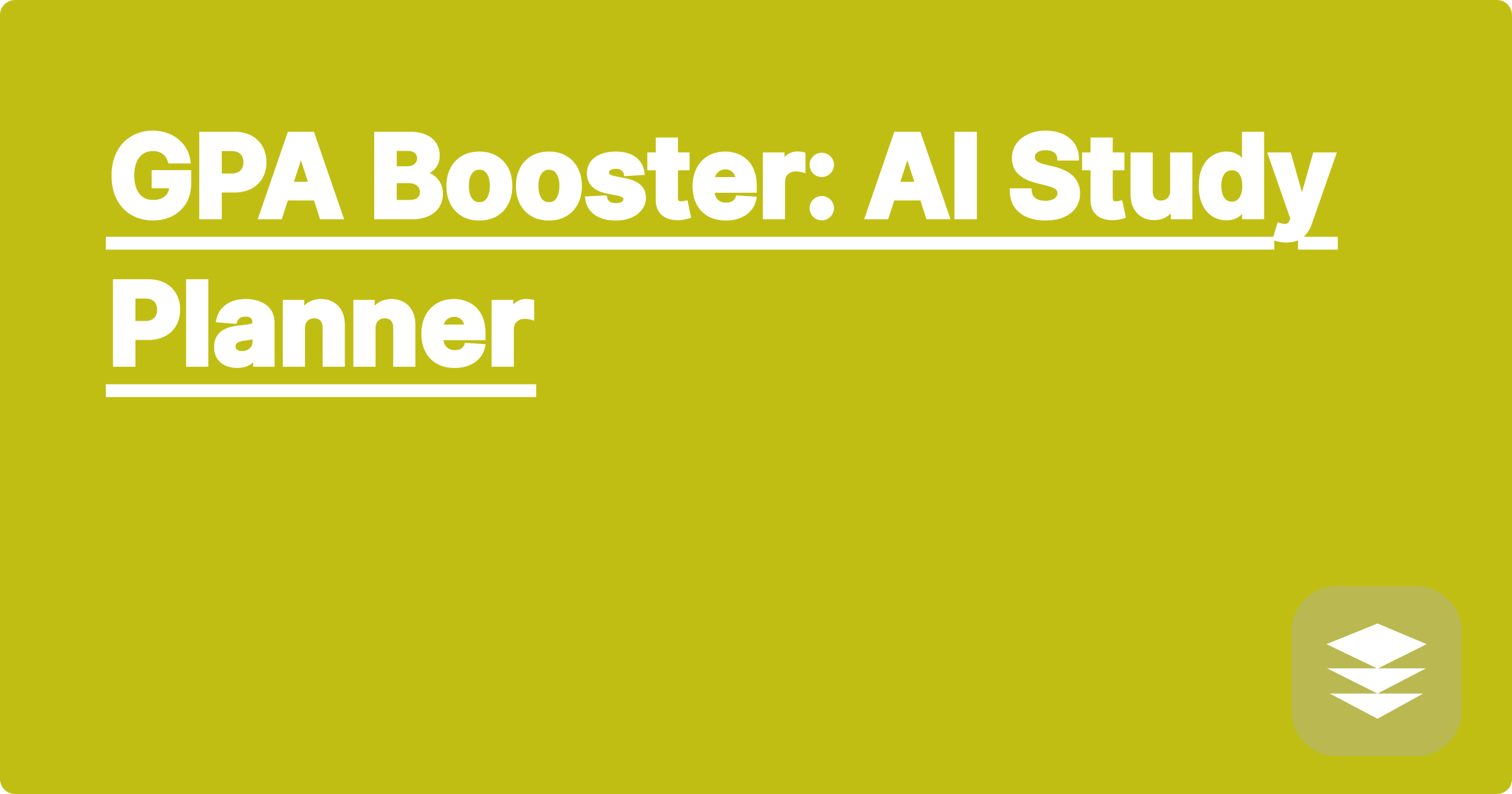
The demanding world of STEM education often leaves students feeling overwhelmed. Balancing complex coursework, rigorous research, and extracurricular activities can be a constant struggle. Many find themselves burning the midnight oil, yet still falling short of their academic goals. What if there was a way to not just manage this workload, but to excel, maximizing study time and boosting GPA? Enter the world of AI-powered study planners, offering a personalized roadmap to academic success.
This isn't science fiction; it's the reality of today's educational landscape. AI-driven tools are transforming how STEM students approach learning, providing personalized insights, optimized schedules, and targeted support. For students striving to improve their GPA, enhance research productivity, and achieve a better work-life balance, these intelligent platforms are no longer a luxury, but a necessity. This blog post explores how AI-powered study planners, such as the innovative GPAI platform, can empower STEM students to reach their full potential.
STEM fields are inherently challenging, requiring deep understanding of complex concepts and the ability to apply them to practical problems. Students often face a deluge of information, from dense textbooks and intricate formulas to demanding coding assignments and extensive research papers. Traditional study methods, like rote memorization and linear scheduling, are often insufficient to tackle these challenges. Furthermore, the sheer volume of material can make it difficult to prioritize tasks and allocate study time effectively, leading to procrastination and ultimately, suboptimal performance. This is where AI steps in, offering a more intelligent and personalized approach to learning.
AI-powered study planners, like the groundbreaking GPAI platform, leverage sophisticated algorithms and machine learning to analyze a student's individual learning style, strengths, and weaknesses. These tools can then create customized study plans that prioritize key concepts, suggest optimal study techniques, and even predict potential areas of difficulty. Imagine having a virtual tutor that understands your specific needs and tailors a learning journey just for you. That's the power of AI in education. Beyond GPAI, other tools like ChatGPT can be used to generate practice questions, explain complex concepts in simpler terms, and even provide feedback on written assignments. Wolfram Alpha can be a powerful ally for tackling complex calculations and exploring mathematical models.
Begin by identifying your specific needs and goals. Are you aiming to improve your GPA in a particular subject? Are you struggling to manage your research workload? Once you have a clear understanding of your challenges, explore different AI-powered study platforms, considering features like personalized learning plans, progress tracking, and integration with other productivity tools. GPAI, for example, offers a comprehensive suite of features specifically designed for STEM students, including personalized study schedules, targeted practice problems, and progress analytics. After selecting a platform, input your course information, deadlines, and personal preferences. The AI will then generate a customized study plan, suggesting optimal study times and learning resources. Continuously monitor your progress and adjust the plan as needed, leveraging the AI's insights to identify areas for improvement and refine your study strategies.
A physics student struggling with kinematics could use GPAI's simulation tools to visualize complex concepts and practice problem-solving. The platform could also recommend relevant online resources and connect the student with other learners facing similar challenges. A chemistry student could leverage AI-powered molecular modeling software, integrated with GPAI, to explore chemical reactions and predict molecular properties. This interactive approach can significantly enhance understanding and retention of complex chemical principles. A mathematics student might use Wolfram Alpha in conjunction with GPAI to verify complex calculations, explore different solution approaches, and gain a deeper understanding of mathematical theorems.
Integrating AI tools into your study routine requires a strategic approach. Don't rely solely on the AI; use it as a supplement to your existing learning methods. Actively engage with the material, asking questions and seeking clarification when needed. Combine AI-powered study planners with proven time management techniques like the Pomodoro method to optimize your study sessions. Remember to prioritize your mental well-being. AI-powered mindfulness apps can be integrated with your study plan to promote focus and reduce stress. GPAI, for example, offers integration with several mindfulness and meditation apps, recognizing the importance of a balanced approach to academic success.
By leveraging the power of AI, STEM students can transform their learning experience. These tools are not just about boosting GPA; they're about fostering deeper understanding, improving time management, and promoting a healthier approach to academic life. Explore the available options, experiment with different strategies, and discover how AI can empower you to reach your full academic potential. Don't be afraid to embrace the future of learning; it's here to help you succeed. Start by researching platforms like GPAI and exploring the many ways AI can personalize and optimize your study journey. The path to academic excellence begins with a single step, and AI can be your guide.
AI-Driven Research: Find Key Papers
Bio Homework Help: AI Assistance
Smart Engineering: AI Tools Guide
Coding Made Easy: AI Debugging
Study Smarter: AI Time Management
AI for Data Science: Analysis Tools
Statistics Made Simple: AI Help